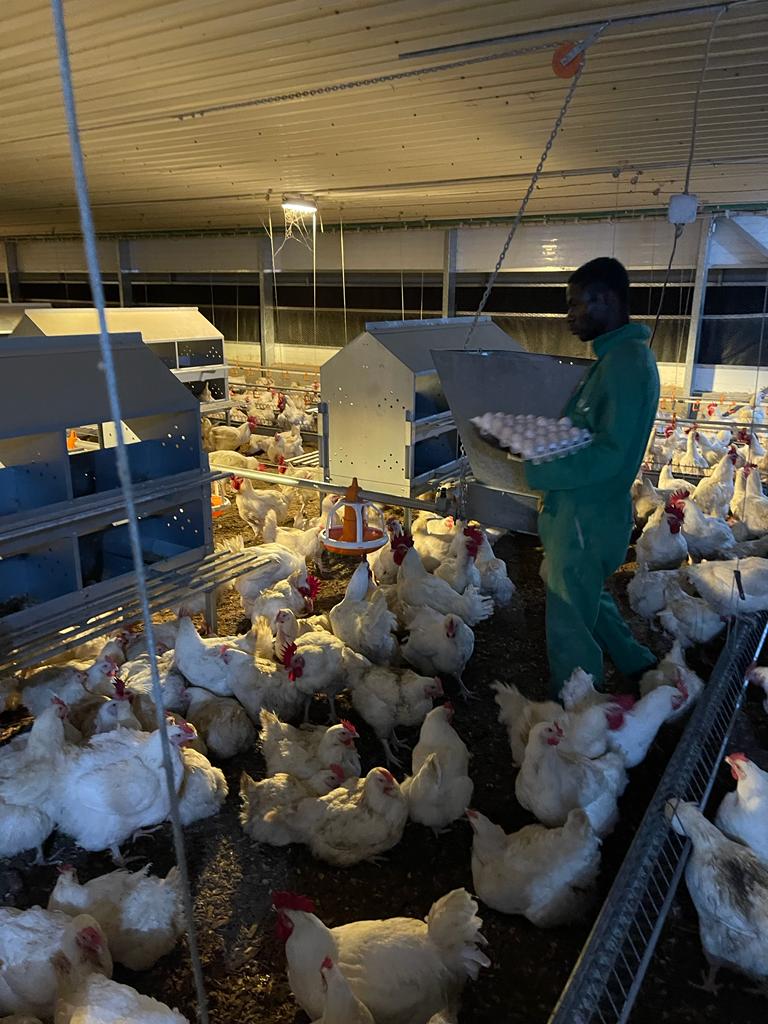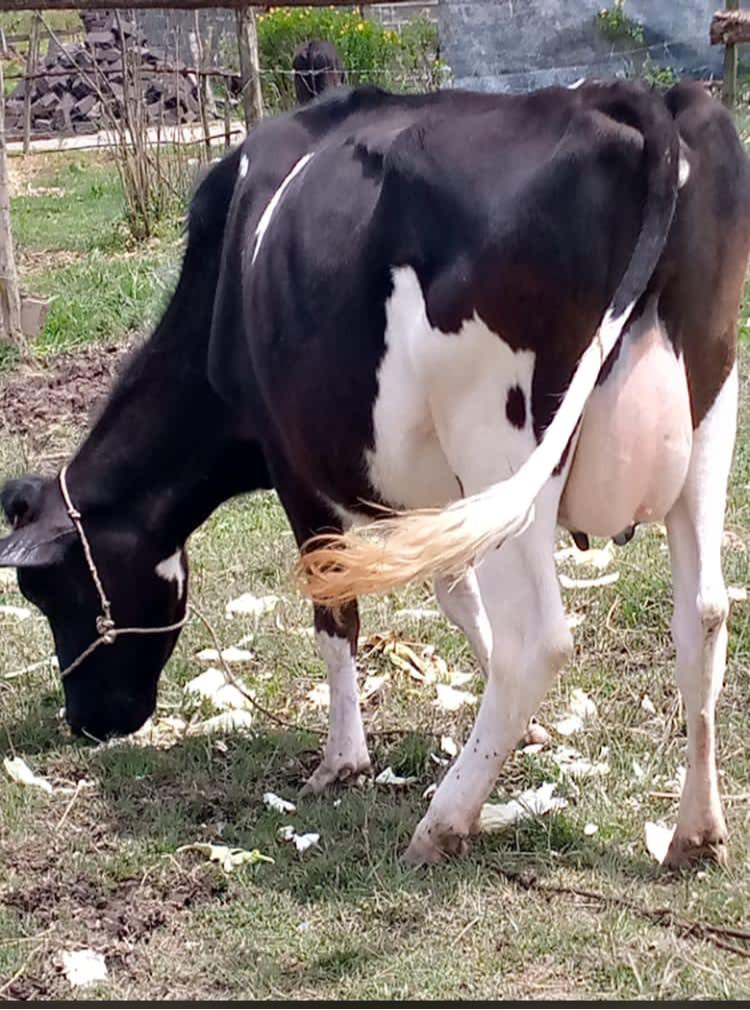
Introduction:
Organic livestock farming is not just a trend—it’s a sustainable and highly profitable venture that is gaining momentum across Nigeria and the rest of Africa. As consumers become increasingly health-conscious and environmentally aware, the demand for organic meat, dairy, and eggs is soaring. In this comprehensive guide, we’ll explore the ins and outs of organic livestock farming, providing you with valuable insights and actionable steps to start and grow a successful organic livestock business. Whether you’re a seasoned farmer or a newbie looking to dive into agribusiness, this article is packed with information that can help you turn your organic farming dreams into reality.
Why Choose Organic Livestock Farming?
1. High Market Demand: The global organic food market is booming, and Africa is no exception. Consumers are willing to pay a premium for organic products, making it a lucrative market for farmers.
2. Health Benefits: Organic livestock are raised without synthetic hormones, antibiotics, or genetically modified organisms (GMOs), resulting in healthier and more nutritious products.
3. Environmental Sustainability: Organic farming practices promote biodiversity, soil health, and reduce pollution, contributing to a more sustainable environment.
4. Better Animal Welfare: Organic farming standards ensure that livestock are raised in humane conditions with access to the outdoors, fresh air, and a natural diet.
Getting Started with Organic Livestock Farming:
1. Choose the Right Livestock:
– Poultry: Chickens, ducks, and turkeys are popular choices for organic farming due to their relatively low maintenance and high demand for organic eggs and meat.
– Cattle: Organic beef and dairy cattle require more space and resources but can yield significant profits.
– Goats and Sheep: These animals are well-suited to diverse African climates and provide meat, milk, and fiber.
2. Understand Organic Certification:
– To market your products as organic, you must comply with organic certification standards. In Nigeria, this involves adhering to the guidelines set by the National Organic Agriculture Movement of Nigeria (NOAN) or other recognized certification bodies.
– Certification requirements typically include using organic feed, maintaining animal welfare standards, and avoiding synthetic inputs.
3. Set Up Your Farm:
– Land and Housing: Ensure your farm has adequate space for livestock to roam and graze. Construct shelters that provide protection from harsh weather while allowing natural ventilation and light.
– Water Supply: A reliable source of clean water is essential for maintaining healthy livestock.
4. Feed and Nutrition:
– Organic livestock must be fed organic feed, which can be sourced from certified suppliers or grown on your farm.
– Incorporate a balanced diet that includes grains, legumes, and pasture to ensure optimal health and productivity.
5. Health and Veterinary Care:
– Organic farming prohibits the use of synthetic antibiotics and hormones. Instead, focus on preventive measures such as vaccinations, proper nutrition, and maintaining clean living conditions.
– Use herbal remedies and organic-approved treatments to manage diseases and parasites.
Maximizing Profits in Organic Livestock Farming:
1. Value Addition:
– Process and package your products to increase their market value. For example, you can produce organic cheese, yogurt, and butter from organic milk.
– Develop a brand that highlights the benefits of your organic products, such as health, sustainability, and animal welfare.
2. Direct Marketing:
– Sell your products directly to consumers through farmers’ markets, organic food stores, and online platforms. This allows you to capture a higher profit margin compared to selling through intermediaries.
– Build a loyal customer base by offering farm tours, sampling events, and engaging with your community.
3. Diversification:
– Diversify your farm by integrating crop production with livestock farming. This can provide additional income streams and improve farm sustainability through crop rotation and manure management.
4. Leverage Agribusiness Funding:
– Take advantage of agribusiness funding opportunities from government programs, NGOs, and financial institutions. These funds can help you invest in infrastructure, certification, and marketing efforts.
Success Stories:
1. Green Pastures Farms, Nigeria:

Green Pastures Farms began as a modest venture with just 50 chickens in the backyard of founder Adewale Johnson. Adewale’s commitment to organic standards and his passion for sustainable farming set the foundation for what would become a thriving business. Here’s a detailed look at their journey and strategies:
Initial Challenges: Starting with limited resources, Adewale faced the challenges of sourcing organic feed and obtaining organic certification. He relied on locally sourced grains and legumes, supplemented by homegrown organic feed crops to ensure his chickens received a balanced diet.
Organic Certification: Adewale pursued certification through the National Organic Agriculture Movement of Nigeria (NOAN). This process involved strict adherence to organic farming practices, regular inspections, and documentation of all farming activities.
Expansion and Innovation: As demand for organic eggs and meat grew, Adewale reinvested profits into expanding his operations. He introduced free-range practices, allowing chickens to roam freely and forage, which improved their health and egg quality.
Direct Marketing Strategies: Adewale leveraged social media platforms to market his products directly to consumers. He also participated in local farmers’ markets and established partnerships with organic food stores in major cities like Lagos and Abuja.
Community Engagement: Green Pastures Farms became a community hub, offering farm tours, workshops on organic farming, and farm-to-table events. This engagement built a loyal customer base and boosted word-of-mouth marketing.
Current Success: Today, Green Pastures Farms supplies organic eggs and meat to major cities across Nigeria. Adewale’s dedication to quality and sustainable practices has made his brand synonymous with organic excellence.
2. EcoDairy Farms, Kenya:

EcoDairy Farms, founded by Grace Wanjiku, is a shining example of how organic dairy farming can be both sustainable and profitable. Located in the fertile highlands of Kenya, EcoDairy Farms has become a household name for high-quality organic dairy products. Here’s how they achieved success:
Rotational Grazing: Grace implemented rotational grazing to ensure her dairy cattle had access to fresh pasture year-round. This practice not only improved soil health but also resulted in healthier cows and higher milk yields.
Organic Feed: The farm sourced organic feed from certified suppliers and supplemented it with homegrown organic crops. This ensured the cows received a balanced diet free from synthetic additives.
Animal Welfare: EcoDairy Farms adhered to strict animal welfare standards, providing spacious shelters, clean water, and regular veterinary care. Happy, healthy cows translated into high-quality milk.
Value-Added Products: Grace diversified her product line by producing organic cheese, yogurt, and butter. These value-added products catered to a niche market willing to pay a premium for organic dairy.
Market Reach: EcoDairy Farms developed a strong brand identity, emphasizing the health benefits and environmental sustainability of their products. They utilized online platforms and local organic markets to reach a wide audience, including international customers.
Funding and Support: Grace secured agribusiness funding from NGOs and government programs aimed at promoting sustainable farming. This financial support helped her invest in modern dairy equipment and expand her operations.
Community Impact: EcoDairy Farms became a model for other farmers in the region, providing training and mentorship on organic dairy farming. Grace’s success inspired many to adopt sustainable practices, contributing to the overall growth of organic farming in Kenya.
Current Success: Today, EcoDairy Farms is a leading supplier of organic dairy products in Kenya and exports to international markets. Grace’s commitment to quality, sustainability, and innovation has positioned EcoDairy Farms as a trailblazer in the organic dairy industry.
Conclusion:
Organic livestock farming offers a unique opportunity to tap into a growing market while contributing to environmental sustainability and animal welfare. By following the guidelines outlined in this article and drawing inspiration from success stories like Green Pastures Farms and EcoDairy Farms, African farmers can embark on a profitable journey in organic farming. The demand for organic products is here to stay, and with the right knowledge and practices, you can turn your organic farming venture into a thriving business.
Ready to get started? Invest in your future today by embracing organic livestock farming—where profits meet sustainability.

